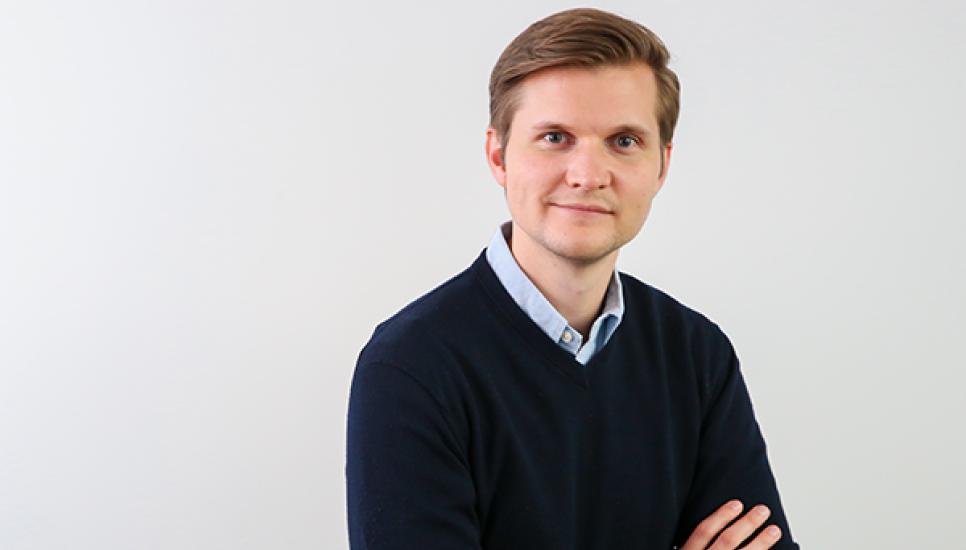Is day zero investing the future of venture capital?

Since launching in Singapore in 2018, global investor Antler has grown rapidly and with focussed purpose. Now, just a few years later and with a presence in 25 cities around the world, the firm is bringing together a global community of startups and entrepreneurs to make their potentially world-changing ideas a reality. According to Pitchbook, it is the most active early-stage investor (seed and earlier) globally in 2022.
With operations in Singapore, the Nordics, Amsterdam, London, New York, Sydney, Nairobi and beyond, Antler is dedicated to developing the next generation of technology companies by investing in them from day zero. This essentially means that Antler works with individuals at the team and idea formation stage and becomes the first investor at the inception stage of the companies.
Here, Antler’s co-founder Fridtjof Berge - an alumnus of Harvard University and named as one of Forbes’ 30 Under 30 in Finance & Venture Capital in 2019 - discusses why getting in on the ground floor can reap dividends for family offices.
Can you talk about Antler’s aims and approach to investment strategy?
When we made our first investments in 2018, we really wanted to address two problem areas. The first was how can we help more entrepreneurs get started on their companies and help remove barriers for them to succeed? The second was how could we get access to high potential companies to invest in?
We thought, ‘why can’t we create a systematic way of supporting great people on a big scale from the very beginning? And as a result of doing this well we can get to know great founders and invest at attractive entry valuations in lots of different technology companies’.
What this has led to today is essentially the largest proprietary deal-flow creator globally. In every single one of our locations, which is now 25 cities around the world covering six continents, we’re attracting great people who are very early with their ideas and we support them in finding co-founders and determining their business model.
Then we make a pre-seed investments in the best ideas after three months. Once we have made that investment, we continue to follow on with more capital as the company grows. We call it day zero investing and it is a very systematic way of identifying talent, creating companies and then becoming the first investor.
The reason why I'm very bullish on this type of strategy is that we're seeing a lot of very exciting trends in the market. Unicorns are coming from both emerging markets and developed startup ecosystems. There are now more than 200 cities with a unicorn, when, in 2013, there were just 37 spread across the US, UK and China... Now, unicorns are literally all over the world.

Things are really happening very quickly. It's cheaper and faster to build a company than ever before. One typical example has been the rapid decline in cloud computing costs, which used to be a big challenge for companies and could cost hundreds of thousands of dollars on servers… now, obviously, we can do the same for a few hundred dollars.
So, you can do more with less, more ecosystems are connected, and capital networks and global resources are more accessible. That means the startups of tomorrow can come from anywhere, which is why Antler has a global platform backing great people in places like Nairobi and Ho Chi Minh City, as well as New York and London.
Many UHNW families have interests in early-stage VC, but what would you say would be the appeal of day zero investing to them?
Family offices have moved down the ladder a bit from public markets and started to invest more in the earlier stages of private markets, including in venture capital (VC). But venture capital investing at Series C is very, very different from venture capital investing at pre-seed. Part of the reason why they haven't been investing in very early stages is because these kinds of companies are less than two years old and, typically, it's really hard work to justify the time spent evaluating what are relatively small pre-seed investments, compared to millions of dollars going in to a series C or series D round.
If you’re investing in late-stage companies, it is a higher likelihood that an individual portfolio company investment will not go to zero. It is a higher likelihood of a positive return, but a smaller maximum upside, than with an early-stage investment. When you go in at the pre-seed stage we focus on, there are, unfortunately, a lot of companies that do not succeed. So, if you have a portfolio of 10-20 companies, which a lot of VCs do, it becomes quite risky and very dependent on outliers.
Typically, we do 100-plus companies in our early-stage funds and that gives us more confidence in our returns. I think that is a good way for family offices to approach early-stage investing.

According to Campden Wealth’s 2023 report The Future Of Family Offices In Venture Capital, the second half of 2022 saw family office interest in venture capital investing slow significantly. Rising volatility in public markets, geopolitical uncertainty and higher inflation were cited as major factors in this decision. Where do you see interest in early-stage VC heading in the near future?
I think it's important to keep a longer-term lens. Early-stage investing will take time and there will be ups and downs. For many families who are new to VC, I can easily imagine they’re thinking it’s a nice-to-have but let’s preserve some cash, prepare for a recession and not take too much risk.
I have found that many family offices have that mentality because they often have fewer liquid assets, but I think it's important for them to keep in mind that venture capital returns really improve following periods of economic downturns – for example, many successful startups like Airbnb, Slack, Uber and Pinterest were founded during or right after after economic downturns.
So, if you have the flexibility and have a long-term view, you may have less competition in the market for deals and you may be able to get in at lower valuations. In a down market, if you have the stomach for it, and depending on your liquidity constraints, it can be a very good time to enter venture capital.
The same report found that FOs continue to invest in technology, with backing for artificial intelligence / machine learning, alternative care, blockchain solutions and digital assets all enduring areas of interest. What would you say is the reason for this?
A lot of these technologies have the potential to create very scalable solutions. I think they're also getting to this stage of maturity, which makes it easier for people to comprehend. Perhaps the best example is in the last six months with generative AI, where you can see the shift in investment activity because people can see some of the real-life use cases. I think the challenge with the metaverse and the Web3 is that they haven’t become necessarily practical enough for people to understand or touch and feel.

These kinds of ideas and technologies have the chance to deliver really high returns and things are also moving faster and faster, which is, again, another argument for getting in early.
One of our advisory board members, Peter Harrison, the CEO of the big asset manager Schroders, is very excited about learning from our world. He deals with much bigger late-stage investments, but he likes to see what entrepreneurs are building, what they are thinking about and what are the disruptive solutions that may impact his world a few years down the line.
Taking the rise of ChatGPT for example, once we’ve heard about it, is it already too late to invest early? How do you keep ahead of the curve?
One thing that I will say about our strategy is that we read about markets like every other investor, we learn, we observe… But a lot of our thinking is, ‘why don't we try to get the smartest people all together in the same rooms and see what they’re passionate about?’ So, rather than me sitting and trying to predict which decisions will change the future, we identify the great people who can shape the future.
It's not too late to get in on technology like generative AI, far from it. There will be hundreds, maybe thousands of companies pushing the barrier and discovering what's possible - some of them will emerge as massive juggernauts, similar to Yahoo and Google. We're in this extremely connected society where so many people have access to powerful technology and we're still scratching the surface on how this can change the world.






